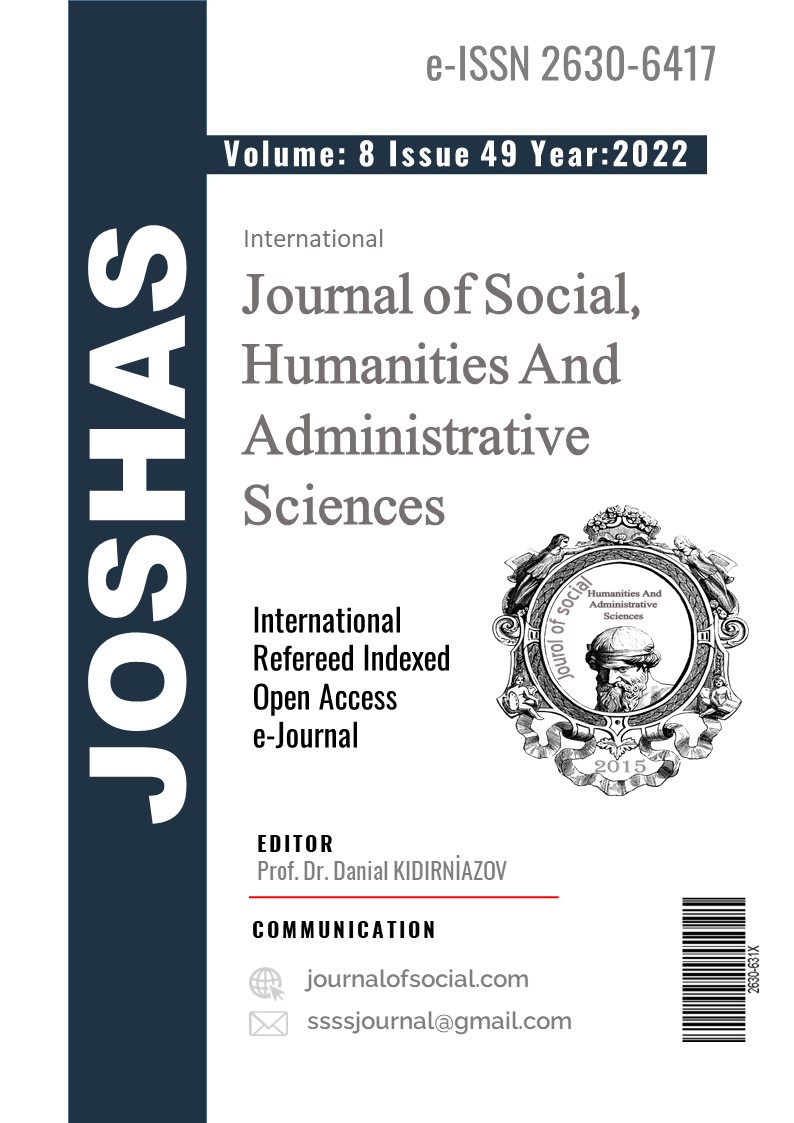Author :
Abstract
İngilizlerin bir ticari ve siyasi nüfuz alanı olarak Basra Körfezi ile ilgilenmesi, 19. yüzyılın başlarına tekabül etmektedir. East Indıa şirketinin bölgedeki varlığı her ne kadar eski olsa da İngilizlerin Basra Körfezi’ndeki aktif faaliyetleri Fransızların Mısır’ı işgallerinin bir sonucu olarak düşünülebilir. İngilizlerin buradaki faaliyetleri siyasi nüfuzlarını Maskat’ın ilerisine ve Osmanlı Devleti'nin idaresindeki Basra vilayetine kadar uzatmak ve iktisadi menfaatlere elde etmek şeklinde yoğunlaşmıştır. 20. yüzyılın başlarında bölgede petrolün bulunması, Şattülarap’ın önemini bir kat daha arttırmıştır. Bu bölgede petrolün bulunması üzerine “Anglo-Persian Oil Company Limited” şirketi kurularak petrolün çıkarılması, taşınması ve pazarlanması başlanmıştır. Petrol üretimi doğal olarak nakliye sorununuda beraberinde getirmiş, Şattülarap’ın önemini daha da arttırmış ve burası İngiliz menfaatleri için vazgeçilmez bir bölge haline gelmiştir
Keywords
Abstract
The British interest in the Persian Gulf as a commercial and political sphere of influence corresponds to the beginning of the 19th century. Although the East India Company's presence in the region is old, the active activities of the British in the Persian Gulf can be considered as a result of the French occupation of Egypt. The activities of the British here focused on extending their political influence beyond Muscat and to the Basra province under the administration of the Ottoman Empire and to gain economic benefits. The discovery of oil in the region at the beginning of the 20th century further increased the importance of Shatt al-Arab. Upon the discovery of oil in this region, "Anglo-Persian Oil Company Limited" was established and the extraction, transportation and marketing of petroleum began. Oil production naturally brought along the transportation problem, increased the importance of Şattülarap even more and this became an indispensable region for British interests
Keywords
- Arzu Terzi, Bağdat-Musul’da Paylaşılamayan Miras, İstanbul, 2007
- Arzu Terzi, Bağdat-Musul’da Paylaşılamayan Miras, İstanbul, 2007 Babıali Hariciye Nezareti, Kuveyt Meselesi, İstanbul, 1917
- Benj Slot, Kuwait, The Growth of a Historic Identity, Kuveyt, 2003
- Burcu Kurt, Ortadoğu’da Bir İstikrarsızlık Unsuru: Şattü’l-Arap Sorunu, Marmara Üniversitesi Ortadoğu Araştırmaları Enstitüsü, İstanbul, 2006
- İlhan Ekinci, Fırat ve Dicle’de Osmanlı İngiliz Rekabeti, Ankara, 2007
- Mehmet Hurşid Paşa, Seyahatname-i Hudud, Neşr Alaeddin Eser, İstanbul, 1997 Muahedat Mecmuası, Ceride-i Askeriye Matbaası, İstanbul, 1298, III
- Rıhlet Murtaza b.ulvan, Neşr Said b. Ömer el Ömer, Kuveyt, 1998Şemsettin Sami, Kamusü’l Alem, İstanbul, 1316, VI 4220
- Zekeriya Kurşun, Basra Körfezinde Osmanlı-İngiliz Çekişmesi, Katar’da Osmanlılar 1871-1916, Ankara, 2006
- Zekeriya Kurşun, Necid ve Ahsa’da Osmanlı Hâkimiyeti Vahhabi Hareketi ve Suud Devletinin Ortaya Çıkışı, Ankara, 1998
- Zekeriya Kurşun, Necid ve Ahsa’da Osmanlı’dan Amerika’ya Tanımlanamayan Irak Dosyası, İstanbul, 2003





